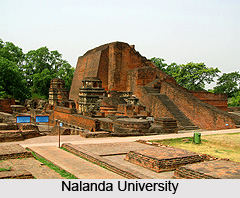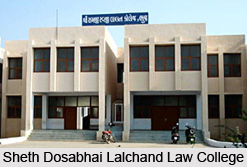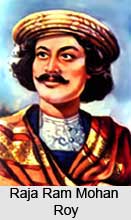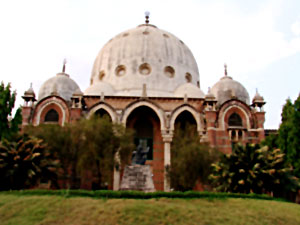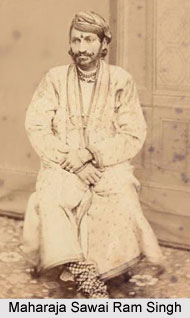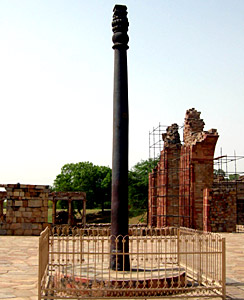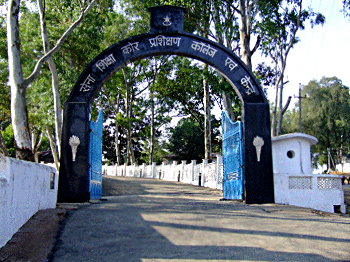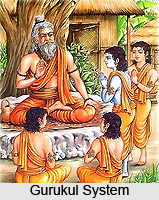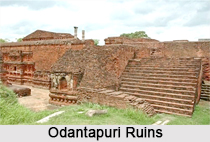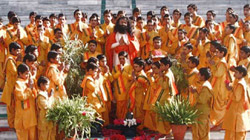Graduate School Admission Test (GSA) is the entrance test conducted for admissions into doctorate programmes in several subjects. This admissions examination is organized by the Tata Institute of Fundamental Research (TIFR). Students who are interested in taking admission in the PhD courses offered by Tata Institute of Fundamental Research need to appear for this entrance test. Tata Institute of Fundamental Research (TIFR) is considered as a premier institution of the country. It is the institute for highly developed research in essential sciences. In the year 2002, Tata Institute of Fundamental Research (TIFR) attained the status of a Deemed University. Apart from the PhD programmes, this institute also runs several integrated graduate programmes. At the institute`s Mumbai campus and other centres throughout the country, these programmes are conducted. Graduate School Admission Test (GSA) is the entry level test for pursuing the integrated programmes offered by this leading institute. The degree programmes of this institute are categorized into major subjects - Mathematics, Biology, Physics, Chemistry, Computer and System Sciences.
Application Forms for Graduate School Admission Test (GSA)
The aspirants can apply online. They can download the application forms from the official website of the institute. For obtaining hall tickets online, the students need to take a printout of the application forms and send it in the institute`s address along with a bank Demand Draft and their two recent photographs. Students who are staying at remote places can send their application in a plain sheet of paper, mentioning their names, full address and preferred test centre to the institute.
Eligibility Criteria for Graduate School Admission Test (GSA)
The academic qualifications required for appearing in Graduate School Admission Test are as follows -
Biology - M. Sc in any science discipline, B. Tech, B.E, MBBS, B. V. Sc, BDS, B.Pharma & M. Pharma
Mathematics - M. Sc/ B.E/ B. Tech/ M. Tech/ M.A/ B.A/ B. Sc degrees. Final year students are also eligible to apply.
Physics/Chemistry - M. Sc/ B.E/ B. Tech/ M. Tech degrees. B. Sc graduates with good academic record in aggregate can also apply.
Computer and Systems Sciences - B.E/ B. Tech/ M.E/ M. Tech/ M. Sc (in relevant disciplines) degree holders and final year students can apply.
Courses Offered at Tata Institute of Fundamental Research (TIFR)
• PhD
• Integrated PhD
• MSc
Pattern of Graduate School Admission Test (GSA)
The test paper consists of objective types of questions with multiple choices and it covers the basics of major subjects like physics, chemistry, mathematics and biology.
Syllabus for Graduate School Admission Test (GSA)
The syllabus of this entrance test follows the basic B. Sc level syllabus. For instance, the syllabus for Chemistry includes areas like physical, organic, inorganic, analytical, biophysics, thermodynamics, logic and statistics, electro and quantum chemistry, spectroscopy (NMR, fluorescence, IR, UV and X-ray), and mathematical methods.
The Physics syllabus comprises topics like general physics, modern physics, classical mechanics, quantum mechanics, heat, thermodynamics, mathematics relevant to physics, electricity and magnetism and statistical physics, electronics and experimental physics.
Mathematics syllabus includes basics like Algebra, Numerical Analysis, complex numbers, elementary, Geometry, Topology, etc.
Selection Process of Graduate School Admission Test (GSA)
The ultimate selection of the candidates is made based on their overall performance in the written test that is followed by a personal interview.
Graduate School Admission Test (GSA) is the entrance test that is conducted for measuring the potentialities and knowledge skills of the applicants for the integrated graduate and PhD programmes offered by Tata Institute of Fundamental Research (TIFR).
